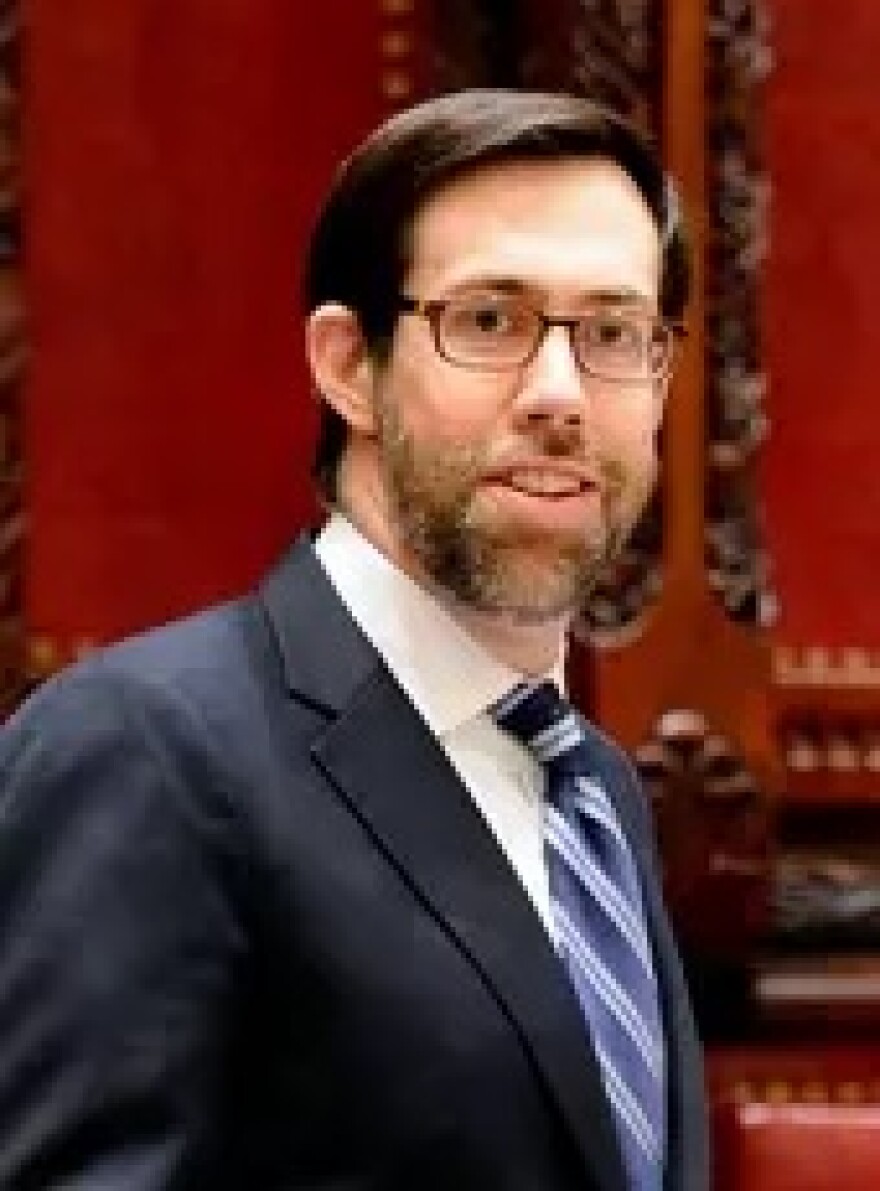Almost two years ago, Democratic state Sen. Daniel Squadron from New York City resigned -- suddenly, after nine years in office.
He said then that state governments were “petri dishes of corruption,” and announced a new effort that would focus on state laws and state elections. A year and a half later, his group, Future Now, has spent about $5 million on elections in Maine and New Hampshire.
WXXI's Ryan Kailath spoke with Squadron about his work since leaving the Senate:
KAILATH: Daniel Squadron, thanks for taking the time.
SQUADRON: Thanks for having me.
KAILATH: So we are having this conversation at a time when it seems like the entire country, or at least the political world, is focused on Robert Mueller’s report. I’m guessing you are not?
SQUADRON: That’s correct. It’s always interesting to see what’s on the front page of the newspapers, but that’s not always the place where the biggest long-term impact on society is going to come from. The core political moment that we’re living in started, has been promulgated, and comes from state legislatures. In fact, I’d say the most important part of the Mueller report is we would never have needed a Mueller report if we had done a better job in state legislatures over the past generation.
KAILATH: Walk me through how you guys are deciding where to focus your attention and your spending.
SQUADRON: Our state legislative strategy we call Moneyball for politics. That’s because state legislatures are the highest-value thing you can do in politics.
Flipping an entire legislative chamber is often less expensive than a single competitive congressional race. Individual legislative races cost one-tenth or less what congressional races do, even though state legislatures can control who controls Congress through gerrymandering, who can vote and who controls the Electoral College through voting laws, and people’s lives through a huge amount of policy.
We then focus on those legislative chambers among the 99 where there’s a real possibility of changing the governing majority so that it would be more able to achieve big goals.
Having selected legislative chambers, we then focus on districts and candidates and find those candidates — the next Stacey Abrams or Barack Obamas — the districts where a lack of investment and focus has meant that the person representing it isn’t the best possible person.
KAILATH: Will you be supporting any candidates who are primarying other Democrats?
SQUADRON: Our focus is on what I’ve described, and so I wouldn’t take anything off the table.
KAILATH: Does it concern you that nobody cares about state elections?
SQUADRON: Yes.
KAILATH: Elaborate.
SQUADRON: States have an enormous amount of power. Whether it’s the quality of jobs, whether roads and buses and subways work or don’t, whether the water that comes out of the tap when we turn it on is going to refresh us or poison us, every one of those issues and more go right through state capitols.
And too often, there’s attention on the presidential race and national races, and those are important, but state legislatures get left out. And that vacuum does get filled, but not by folks who have the broadest interests in mind; those that have the most narrow.
KAILATH: I know that probably for years, you dreamed of a Democratic Senate majority here in New York, and now that you’re out of government, New York has one. Do you ever regret not being in the Senate at this time?
SQUADRON: I have been so excited to watch my former colleagues take on these issues that we fought for together for so long, whether it’s closing the LLC loophole or reforming New York’s speedy trial law, I have been so happy and inspired by the work they’re doing and look forward to seeing more.
KAILATH: Daniel Squadron, thanks for joining us.
SQUADRON: Thank you.

